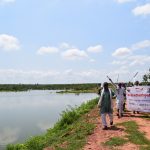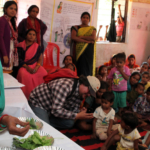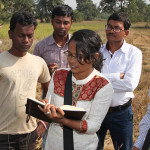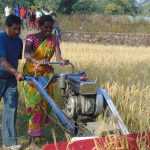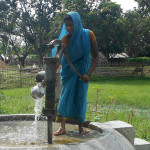Welthungerhilfe India, Nepal, Bangladesh
Key Facts
59% of the total indian population
lives on less than US$2 per day (worldbank.org)With 194 million people
India tops world hunger list. This translates into over 15 per cent of India’s population. (UN, 2015)The WHH Approach
Welthungerhilfe India’s programme aims to enable civil society to ensure the right to adequate food and nutrition security amongst disadvantaged communities through constructive multi-stakeholder engagement. The promotion of sustainable food and nutrition security with the aim to guarantee and protect the human right to sufficient, adequate and culturally acceptable food constitutes the core of our work.
Following a rights-based approach, in India we operate at two levels.
At the local level, our programme enables citizens and communities to access and sustain public entitlements that are essential to fulfil their right to adequate food and nutrition security. The programme also complements and supports government services through civil society and private sector innovations, especially in the areas of:
- behavioural change with regard to health, nutrition, hygiene and sanitation
- creation of livelihood opportunities of citizens and communities through agriculture support, value chain development and vocational
- training through Green Colleges
- humanitarian assistance in times of natural disaster.
Welthungerhilfe promotes a multi-sectorial approach that links agriculture and natural resource management, to rebuild and strengthen local sustainable food systems towards nutrition security. We provide strong support to smallholder farmers through the promotion of sustainable integrated farming systems (SIFS), interlinking crops, trees, livestock, aquaculture, watersheds, and forestry These systems are crucial for responding to the impacts of climate change; similarly, we focus on the revival of traditional water harvesting and the development of knowledge based information and data systems for climate change adaptation.
At the national level and global level, our programme engages in policy advocacy, networking and experience sharing on community rights on land, water, forests and other natural resources, right to food and nutrition security, mainstreaming agro-ecological smallholder farming and rural knowledge and skill building in green trades.
